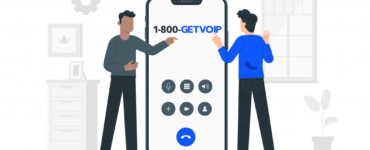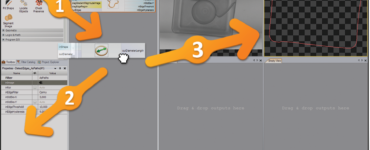A VPN is a simple way to keep your browsing activity private and protect your privacy online. It also helps you understand service restrictions and censorship by making websites think your traffic comes from elsewhere.
Ultimate guides are a great way to rank highly for popular keywords, but they take longer to write and require extensive research. To make yours stand out, focus on a few key points.
What is a VPN?
A VPN is a virtual private network that protects data from hackers by creating an encrypted tunnel between your device and the server. This means that no one can snoop on your online activity, not even your internet service provider or the websites you visit.
Cybercriminals can use your online search history to spy on your activities and steal your personal information. This is especially dangerous if you use a public WiFi network or live in a country with strict internet censorship laws. VPNs stop them from accessing and using your data for identity theft or ransomware attacks.
In addition to protecting your online privacy, VPNs prevent price discrimination by giving you an IP address in another country. This allows you to shop for things like flights, textbooks, technology, or hotels without falling victim to the dynamic pricing tactics that many ecommerce sites employ. Some VPNs also block advertising trackers so your browsing behavior isn’t sold to third parties. However, check the logging policies of your potential VPN providers before choosing one.
How does a VPN work?
Connecting to a VPN creates a tunnel of encrypted data packets between your device and a server. Once complete, your internet data goes to websites and online services. This hides your identity and protects your data from third parties. However, because your data has to go through the VPN server first, your internet speed may be slower than usual.
VPNs aren’t just for organizations that want to protect trade secrets or travelers wishing to use airport WiFi safely. They can also defend everyday users by obscuring their location and providing an extra layer of security against hackers.
Without a VPN, all your internet traffic is exposed to anyone who can monitor public networks, including the government, businesses, and advertisers. When connected to a VPN, all your online activity is funneled through the server you’ve chosen to connect to. This means that no one can see your actual address or identify the website you’re visiting. Although, it’s important to remember that a VPN doesn’t obscure all of your data and that other tools are necessary for complete protection.
How do I use a VPN?
So, how to use VPN? The first step is to find a VPN service provider that offers software or apps for your operating system. You can then download and install the VPN on your computer or smartphone. Once installed, you can launch the app from the Start menu on Windows or the App Store on Mac.
Once the VPN is running, your data will be sent through an encrypted tunnel from your device to the VPN server, then rerouted to the website you want to visit. This process helps to hide your location and prevents your ISP from throttling your internet speed. It also helps to break through school or work networks that block access to specific sites or services.
You can use a VPN every time you go online. Still, using one when using public WiFi or entering sensitive information on websites like online banking and shopping is essential. Even your home WiFi can be susceptible to attacks from hackers, who could steal your personal information, take over your computer, or gain access to your banking accounts and credit card numbers.
What are the benefits of a VPN?
A VPN protects your data from hackers and snooping agencies by encrypting it. This prevents your ISP, advertisers, and third parties from accessing your online activity, location, and identity.
A good VPN also has a kill switch feature that cuts off your internet connection if the VPN connection is lost even for a moment. Without this, your data could be exposed to cyber criminals until you reconnect to the VPN.
Some ISPs limit their customers’ bandwidth if they stream videos or play games in HD because it is expensive to supply high-speed connectivity to all of their customers. A VPN hides your activities from your ISP, so they can’t throttle your connection based on your online habits.
Using a VPN can also help you avoid pricing discrimination. Some websites have prices that vary based on your IP address, which can be misleading and unfair. Changing your IP address with a VPN can help you get fair prices online shopping. Lastly, businesses can use VPNs to connect their employees remotely and improve security.
What are the drawbacks of a VPN?
When you use a VPN, the virtual tunnel between your device and one of the service’s servers encrypts your internet traffic. This means websites can no longer see your IP address and location, which helps keep your browsing and shopping private. Instead, they know the IP address and location of the VPN server, which is generally shared by many other users and changes regularly.
This doesn’t prevent ecommerce sites from tracking your behavior and using cookies to target you with price discrimination, but it does help limit their access to your personal information. It also doesn’t protect you from ad trackers or the data you share on social media, but it’s an excellent first step to protecting your privacy.
Another drawback is that VPNs can add a layer of complexity to your online experience. It would help to connect to a VPN before you can start browsing the web or streaming content, which can be a pain when you’re on the go. However, it’s important to remember that your security and privacy are worth the extra hassle.
For more valuable information visit our websites.










